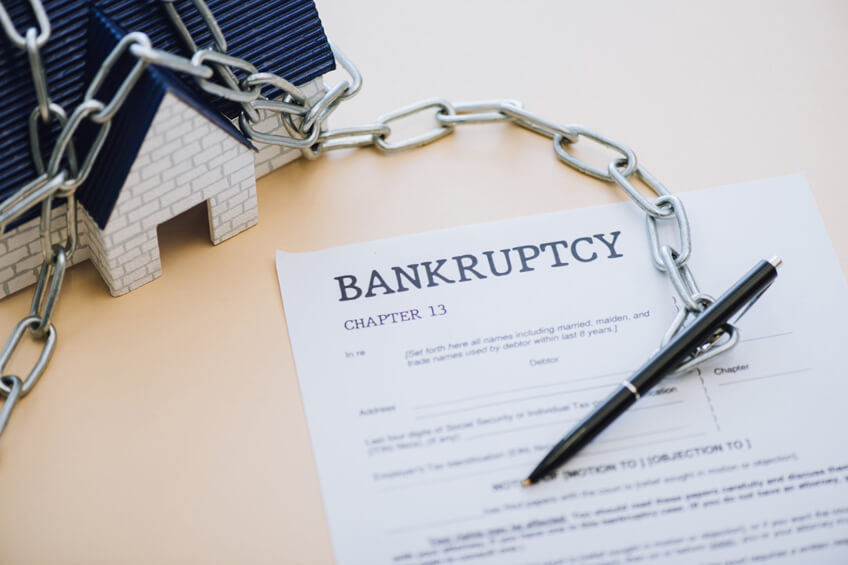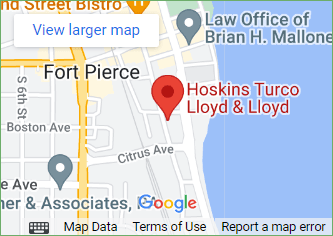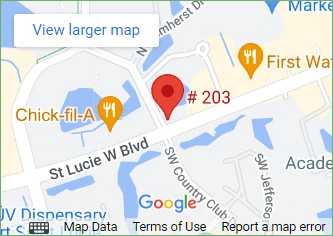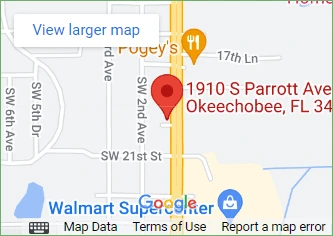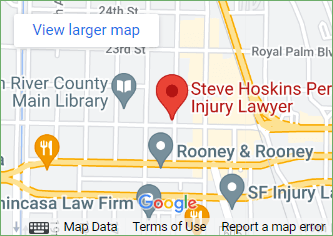Auto Accident Settlement
Can you pay off a Chapter 13 early in Florida?
Chapter 13 bankruptcy allows debtors to pay off their debts over a span of three or five years. If you are considering filing Chapter 13, you could be wondering if you will have the option to pay off your plan early.
There’s no way to predict what your financial future will look like with complete accuracy. In the event you were to come into money or experience a significant bonus or raise at work, you may want to attempt to pay off your Chapter 13 early. While early payoffs are technically permissible, we’ll explain why they are not advisable in most situations. Keep reading to learn more, and refer to a Florida Chapter 13 bankruptcy attorney for specific recommendations regarding your case.
How Chapter 13 Repayment Plans Work
Chapter 13 bankruptcy allows debtors to retain their property while repaying their debt over a number of years. The court must approve the repayment plan for the bankruptcy petition to be granted and the case to begin.
Agreeing to a court-approved repayment plan means agreeing to give all of your calculated disposable income to your creditors over the course of your repayment period. As a result, people are often required to live frugally while managing a Chapter 13 repayment plan.
At the end of your repayment plan, any unsecured debts, like personal loans, credit balances, medical bills, etc., can be discharged. It is important to note that student loans, mortgages, and auto loans are typically not included in any discharged amounts.
What Is Disposable Income?
Your disposable income will fund your Chapter 13 bankruptcy repayment plan.
Disposable income refers to any money that is left at the end of the month after you have paid your necessary expenses. The cost of your expenses is not based on your actual monthly bills but rather predetermined figures depending on where you live. Expenses like rent, food, and utility payments are taken into consideration.
It is essential to understand that disposable income is not considered static. If your income increases over the course of your repayment plan and your expenses stay the same, your bankruptcy payments will go up.
Applicable Commitment Period
As mentioned, Chapter 13 repayment plans last for either three or five years. The length of the plan you are given is based on our income and the related applicable commitment period.
If your income is below Florida’s median income and you file Chapter 13 bankruptcy, you must pay all of your disposable income to your creditors for three years. If your income is above Florida’s median income, your applicable commitment period is five years.
Why Early Payoffs Don’t Work
So long as you continue to pay your disposable income for the length of your repayment plan, there is little reason for the court to discharge any debts early. Attempting to pay off your plan early means paying 100% of your debts, which would render you ineligible for any amount of discharge.
Before you are eligible for discharge, you need to follow through on the terms you agreed to when petitioning for Chapter 13 bankruptcy. Those terms include paying your disposable income to your creditors for a three to five-year period. Non-priority, unsecured debt balances can be wiped out at the end of that term.
If you still wish to go forward with repaying your Chapter 13 plan early, you will need to inform your creditors and obtain court approval. Your creditors and bankruptcy trustee have the ability to object to your early payoff. If you have come into money from an inheritance or work bonus, creditors are likely to argue that you could simply pay more on your plan. They are also likely to say that if you pay off your debt early, they will lose out on future disposable income.
If you request an early payoff and get denied, you will likely see an increase in your payments that reflects your new income. This could result in struggles down the road if that increased income were the result of a one-time situation.
Early Repayment Exception
The only situation where you are allowed to pay your plan off early is if you pay your creditors in full. Paying 100% of your debt means you will no longer need a repayment plan. However, this also means that you will no longer be eligible for a discharge.
Early Hardship Discharge
In the event you suffer a significant financial setback over the course of your repayment plan that prevents you from continuing to make payments, you can apply for a hardship discharge.
To be eligible for a hardship discharge, you must meet the following requirements:
- You have paid back at least the amount creditors would have received through a Chapter 7 filing
- Your financial setback is not your fault
- Your financial situation will not improve in the foreseeable future
- You do not have enough discretionary income to consider modifying your repayment plan
If you meet those requirements, your plan can end early, and unsecured, nonpriority debts will be wiped. Applying for an early hardship discharge isn’t always easy, so it is likely in your best interest to work with an experienced bankruptcy lawyer.
Contact Hoskins, Turco, Lloyd & Lloyd
If you are ready to take control of your financial future and think Chapter 13 bankruptcy may be the right decision for you, a Florida bankruptcy attorney can help. The lawyers at Hoskins, Turco, Lloyd & Lloyd are well-versed in Florida’s bankruptcy laws and regulations. We can explain your rights and options to help you determine how best to proceed to improve your financial health.
We understand how precarious finances can be. Bankruptcy is often viewed as a process for those who have been irresponsible with their money, but we know that is rarely the case. In fact, it only takes a single setback like unexpected medical bills to put someone in a difficult financial situation.
Before you take any actions regarding your debts and financial future, you need to understand the pros and cons of filing for bankruptcy to determine if that is the right call for you. Schedule a free consultation with our bankruptcy attorneys today to learn more about managing your debts through Chapter 13 when you call (866) 930-6435 or contact us online.
Verdicts and Settlements
$1.2 Million
$1.6 Million
Wrongful Death Settlement
$11.1 Million
Settlement for motorcycle accident
Locations
Ft. Pierce, FL 34950
Suite 203, Port St. Lucie, FL 34986
Okeechobee, FL 34974
Vero Beach, FL 32960
The hiring of a lawyer is an important decision that should not be based solely upon advertisements. Before you decide, ask us to send you free written information about our qualifications and experience.
We are a debt relief agency and attorneys. We help people file for Bankruptcy relief under the Bankruptcy Code. The hiring of a lawyer is an important decision that should not be based solely upon advertisements. Before you decide, ask us to send you free information about our qualifications and experience.
Hoskins, Turco, Lloyd & Lloyd © 2020 All Rights Reserved. Terms of Use and Privacy Policy
This site is protected by reCAPTCHA and the Google Privacy Policy and Terms of Service apply.
